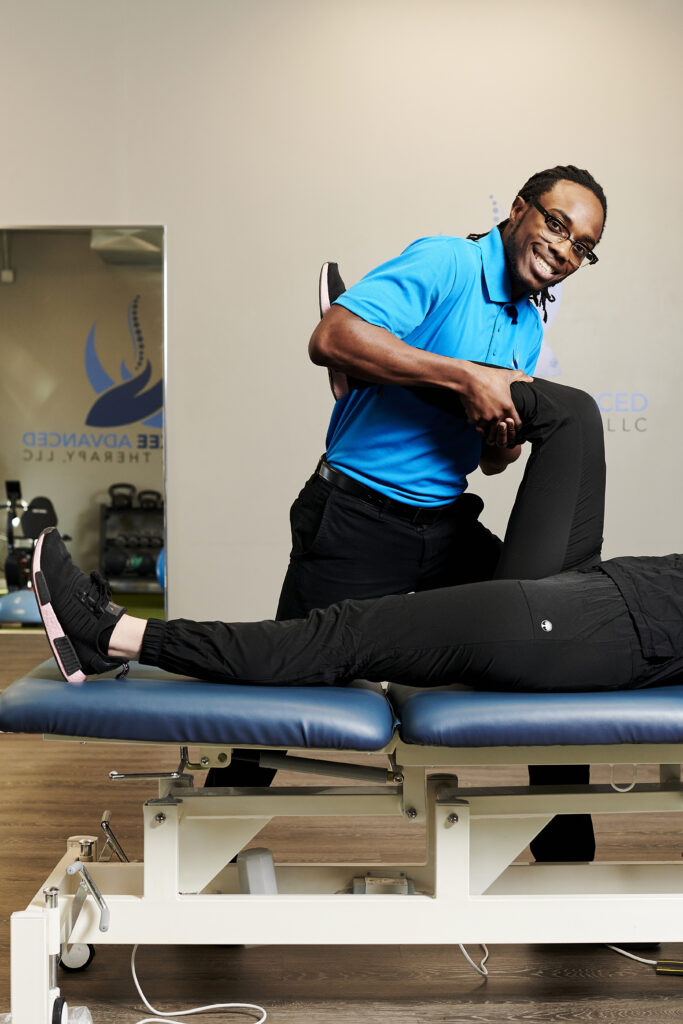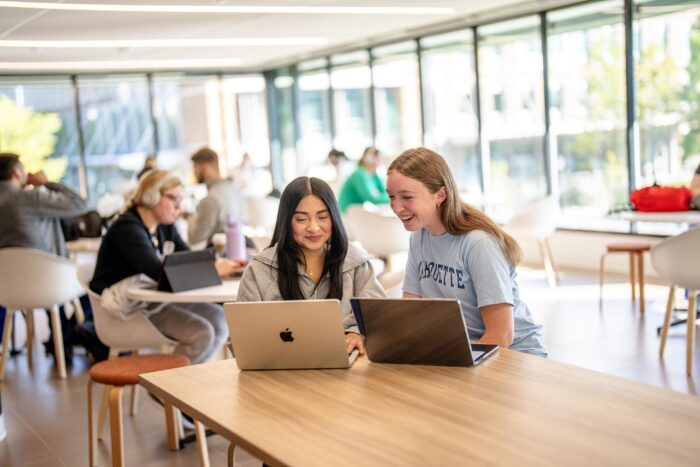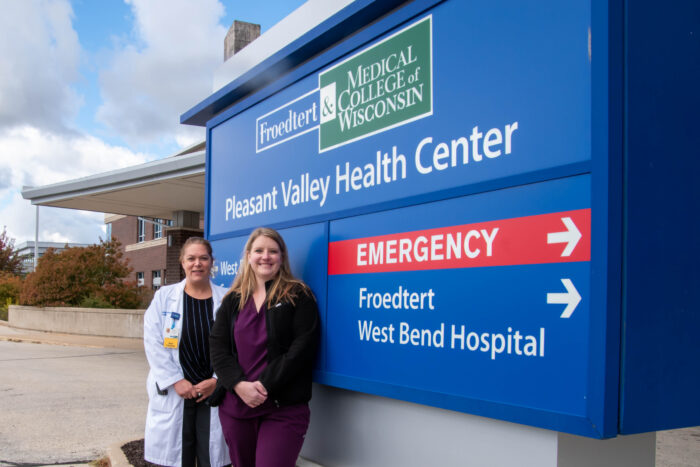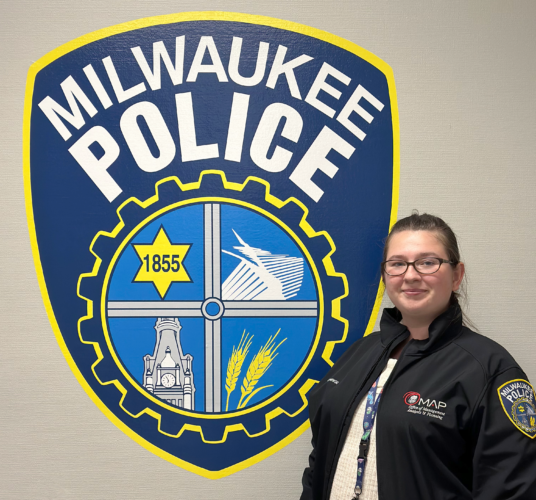
This story is a part of a larger series about College of Health Sciences faculty’s work outside the walls of the university and in the Milwaukee community. Read the full series here.
If you plot the locations of Milwaukee physical therapy clinics on a map, it’s clear that some areas of the city have easier access to care. It’s a theme that recurs at all levels of our health care system: It’s harder for some people to get the care they need.
Clinic locations do “somewhat reflect the demographic makeup [of the city],” says Dr. Albojay Deacon, H Sci ’11, PT ’13, clinical assistant professor and coordinator for diversity, equity and inclusion in the Physical Therapy Department. “In some areas, you just don’t have PT clinics.”
Deacon owns and helps run Milwaukee Advanced Physical Therapy along with his siblings, Santana and Adella Deacon, both also Marquette PT alumni. It’s the first Black-owned clinic in the city. Founded in 2021, their physical therapy clinic is on Fond du Lac Avenue, near Lloyd Park, in an area that hasn’t traditionally had many health care clinics.
Factors like insurance coverage, as well as Milwaukee’s complicated history of redlining and racial segregation, play into that status quo. Deacon says getting in network with different insurers has been a difficult, but necessary part of the clinic’s mission to serve as many people as possible.
“The research shows that the type of insurance that you carry can ultimately change the outcome of your health,” he says. “There’s an intentional decision there to provide high-quality care.”
The responses from patients so far have been overwhelmingly positive, Deacon says. And Deacon’s work at Milwaukee Advanced Physical Therapy harmonizes with the other facets of his professional life, which includes the American Physical Therapy Association Wisconsin, and his DEI work for the Physical Therapy Department.
“I felt like [the DEI] position gave me the opportunity to reach out to those who may be underrepresented and also support them,” Deacon says. Some of his first priorities include establishing baseline measurements for how DEI factors affect students’ success, and bringing students, faculty and alumni together to weave a support network.
The work feeds back into his clinical work as well, as Deacon and his siblings welcome student interns to work alongside them at their clinic. The demographic makeup of PTs in Wisconsin doesn’t yet reflect the true diversity that exists here, but Deacon says he’s hopeful that will change.
He says he often hears from students that “it’s refreshing to see someone that looks like me that’s doing this,” he says. “Or, ‘Wow, I didn’t think it was possible to open my own clinic, but now I see you doing it.’”
“It does make it all worthwhile to know that somehow I’m having that type of impact.”


